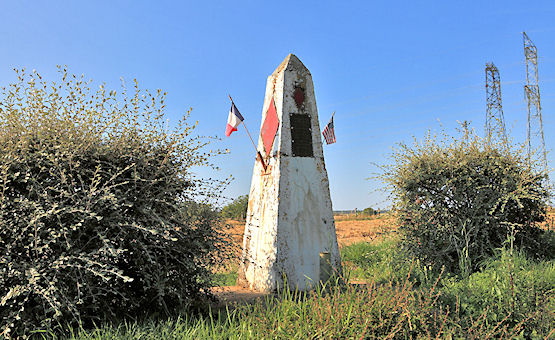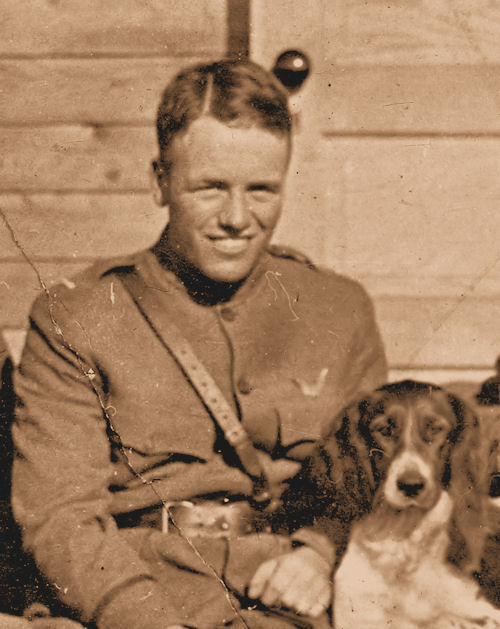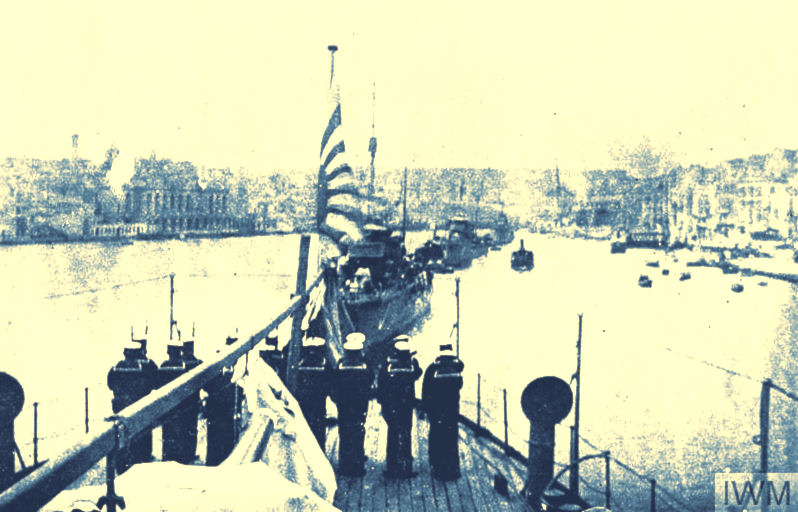
A Japanese Destroyer Flotilla Visiting Marseilles During the War (IWM Photo)

Last month, I had much postivie to say about Peter Jackson's documentary They Shall Not Grow Old. In this issue, I would like to give equal praise to a group that has been doing similar quality work (although not at the same level of technology) for the entire Centennial on video. It's the small Europe-based group that produces The Great War YouTube channel. Since 2014 the group has produced 651 10-15 minute videos, all hosted by American actor and historian Indiana (Indy) Neidell.
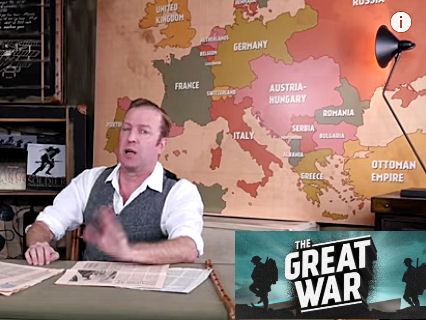
Indy at His Anchor Desk
The programs cover the war from every conceivable angle, weekly historical summaries of what transpired 100 years previously, weapons, diplomacy, personalities, culture, and more. I've watched at least 50 of the episodes and I can't remember one in which I failed to learn something new about the war. Indy's the perfect guide and he particularly shines when doing interviews, being infectiously enthusiastic and curious, but willing to let his guest answer his questions fully. Visit the YouTube home page for the Great War HERE.
MH

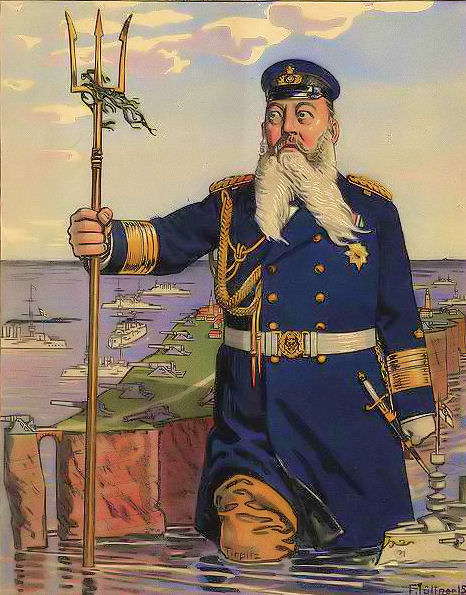
Did Tirpitz Lose the War for Germany?
By Norman Friedman from
"World War I: A Maritime War?"
It followed that as the Germans began building a large fleet, the British–including the
British public–saw that fleet as a direct threat. For all the Germans’ talk about how
the fleet might deter the British from entering a European war, the existence of a large
German fleet in effect guaranteed that the British would enter the war. That in turn
guaranteed that the war would have an important maritime aspect. Maritime did not mean simply naval; it did not mean that sinking the German fleet, for example, would
necessarily win the war for the Allies. It meant instead that the Allies gained potential
mobility around the edges of Europe and also that the Allies could draw strength from
the rest of the world. Every Australian soldier who fought in France or in the Middle
East got there by sea, courtesy of Allied–mainly British–sea control. Conversely, when
the U-boats threatened to break maritime communications in 1917, they posed a mortal
threat to the Allies.
It might be pointed out that in selling his fleet-building plans, Admiral von Tirpitz
often claimed that the German battle fleet would deter the British from participating
in a future European war. The German public certainly understood that the new fleet
was directed against Britain. To what extent did Tirpitz’s very effective News Bureau
(propaganda office) foment anti-British sentiment in Germany as a way of justifying
an expensive fleet program? That is not to suggest that there would have been no anti-British sentiment in Germany without Tirpitz, but rather to suggest that Tirpitz and
his associates were not particularly responsible when it came to selling a big navy.
They certainly did well; in 1912 about half the German defence budget went to the navy–- in a country which traditionally concentrated on its army.
The maritime character of the war seems to have been obvious to the defeated Germans
in 1918. A U.S. naval officer on the Allied Control Commission (which was superintending
German disarmament) wrote home early in 1919 that the German navy was hated in
Berlin, its former officers afraid to wear their uniforms. Pamphlets with titles like "Tirpitz,Gravedigger of Germany" were being sold freely. The point of the pamphlets was that,
had Admiral von Tirpitz not succeeded in building a large fleet, the British might well
not have entered the war. The German army would have been larger, presumably large
enough to win its land war in 1914. Instead, the Germans were forced into a protracted
war in which they had to take worse and worse risks. After World War II (WWII) the
German naval commander in the Mediterranean, Vice Admiral Eberhard Weichold,
wrote that
Germany lost World War I because she failed to break British seapower. All the
successes of the German army on the Continent were negated by the course
of the war at sea. Every means of pressure used by the Allies, which led to
the collapse of the Central Powers in 1918, was only a consequence of British
seapower. Moreover, the last decisive battle, which was fought on the Continent,
was only made possible by the exercise of seapower.
Naval rivalry surely led the British to enter the war as they did, although it can be
argued that they would have supported France anyway to maintain the balance of power
in Europe. The important point is that without a widely-agreed feeling that Germany
offered a mortal threat, the British government would have found it difficult to convince
the British population that the war was worth the sacrifices it entailed. Looking back,
we see an emphasis on ‘brave little Belgium’ and on the cynical German statement that
the treaty guaranteeing its integrity was only a ‘scrap of paper’. It seems likely that when war broke out the British government hoped that it could be contained and that
the government accepted that the war was irreversible only when the Germans invaded
Belgium despite their pleas. It might be added that Belgium was a sensitive area for the
British because it was seen as a natural base for invasion - by sea.
We now know that the rise of the German navy had nothing to do with any German
decision to trigger a world war. There was no German naval war plan. We know as much
from the remarkable diary kept by Admiral von Tirpitz as he stayed in the Kaiser’s
headquarters in 1914-15. There is a parallel set of letters by Admiral von Pohl, the head of
the naval staff. Neither had any idea of what to do with the fleet, and both were unhappily
aware that both the Kaiser and the Chancellor thought the best use of the fleet was as a
postwar bargaining chip (the Kaiser wanted the fleet kept intact for that role).
The British apparently could not imagine that a rational country like Germany would
spend heavily on a fleet, which would obviously threaten them, without thinking through
its wartime employment. It appears that no one in the Royal Navy or, for that matter, in
the British government, could imagine irrationality on this scale. In retrospect, it seems
that Tirpitz was fixated on building a big battleship navy, perhaps because as a young
officer he had decided that he did not want to serve in a third-rate fleet. The Kaiser
was enthusiastic about battleships–at one point before the war he described a type he
wanted (but did not get) as his "love object". Tirpitz argued that his fleet was in effect
a public works project which would create a class of well-paid workers who would vote
against the Social Democrats (but did not do so in 1912).
Source: The War at Sea: 1914-18 — Proceedings of the King-Hall Naval History Conference 2013.
|
|

Japan in the
First World War
In August 1914 at the outbreak of World War I, Japan, deciding to honor the terms of its 1902 alliance with Great Britain, declared war on Germany despite deep misgivings among many in the government and army who felt Germany would prevail. However, the Japanese government saw that by supporting the Allies, especially the British, they would have an opportunity to expand their influence in Asia and its territorial holdings in the Pacific. Imperial Japan's armed forces participated in several notable operations during the war, both helpful to the Allies and alerting them to Japan's expansionist ambitions.
 Japan in the Great War (Broad Overview)
Japan in the Great War (Broad Overview)
 Interview with Historian of Japan Frederick Dickinson
Interview with Historian of Japan Frederick Dickinson
 Japanese Military Operations in the First World War
Japanese Military Operations in the First World War
 Japan and the Siege of Tsingtao
Japan and the Siege of Tsingtao
 Anglo-Japanese Naval Cooperation, 1914-1918 (PDF)
Anglo-Japanese Naval Cooperation, 1914-1918 (PDF)
 Japan's Expedition to Siberia
Japan's Expedition to Siberia
 The Shock of the First World War: Japan and Total War
(PDF)
The Shock of the First World War: Japan and Total War
(PDF)
World War I’s political legacy for Japan?
Japan’s choice to side with Great Britain over joining Germany or remaining neutral meant it had a place at the peace talks after the Armistice was declared on 11 November 1918. There, Japan fought hard to keep its influence in China, creating suspicion and mistrust among its wartime allies, who wanted a return to the prewar status quo in China and Asia.
Ultimately, as in Europe, World War I would sow the seeds in the Pacific for World War II.
Japan Times, 16 June 2014

An Overly Optimistic View
from 1911
We can now look forward with something like
confidence to the time when war between civilized nations will be considered as
antiquated as the duel, and when peacemakers shall be called the children of
God.
G.P. Gooch, History of Our Time: 1885-1911, 1911

Despite my retirement from the business, there will still be possibilities for you to visit the battlefields of the Great War.
2019
AEF Battlefields
From: Valor Tours, Ltd. / Mike Grams, Tour Leader
When: September 2019
Details: Request brochure via Email
HERE.

They Shall Not Grow Old will screen at 500 North American theaters in 150 markets starting on February 1, 2019, with special preview screenings being held on January 31. These will not be one-day affairs, either, but regular engagements. Check HERE for listings across the U.S.A.
To Commemorate the Centennial of the signing of the Treaty of Versailles and to Celebrate American philanthropy before and after World War I a Versailles Palace Dinner will be held in the palace's magnificent Hall of Battles on 28 June 2019. Proceeds from the event will be dedicated to building America's National WWI Memorial at Pershing Square. For information email
HERE

An unpublished poem by noted war poet Ivor Gurney was unearthed by editor Tim Kendall in 2009 and later presented in his anthology Poetry of the First World War from Oxford University Press. It's a terse description of real-life in the trenches.
The Stokes Gunners
When Fritz and we were nearly on friendly terms—
Of mornings, furtively, (O moral insects, O worms!)
A group of khaki people would saunter into
Our sector and plant a stove-pipe directed on to
Fritz trenches, insert black things, shaped like Ticklers jams—
The stove pipe hissed a hundred times and one might count to
A hundred damned unexpected explosions,
Which was all very well, but the group having finished performance
And hissed and whistled, would take their contrivance down to
Headquarters to report damage, and hand in forms
While the Gloucesters who desired peace or desired battle
Were left to pay the piper—Cursing Stokes to Hell, Montreal and Seattle.
Visit Our Daily Blog
 Click on Image to Visit
Click on Image to Visit
|







